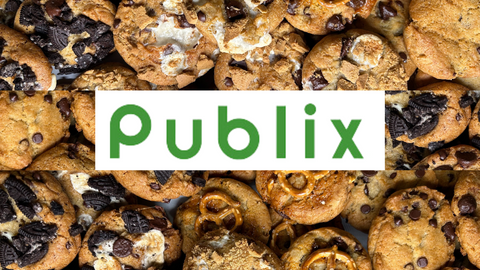After years of dedicating time to raising a family as a stay-at-home parent, or being out of work for an extended period of time, the transition back into the workforce can be both exciting and daunting. The prospect of interacting with colleagues on a larger scale, after years of focusing on family life, can feel intimidating, particularly for those juggling the demands of parenthood and personal commitments. One common concern for individuals following specific dietary preferences, like a vegan lifestyle, is navigating the social dynamics of office culture—especially during team lunches, office gatherings, or food-centered events.
For many vegans, the challenge isn’t just explaining dietary choices but also dealing with potential discomfort or misunderstandings from others. These interactions can range from well-meaning curiosity to judgmental questions or even requests for advice on transitioning to a plant-based lifestyle. In such a setting, it can sometimes feel isolating, especially when traditional food options at work events don’t accommodate dietary restrictions.
Facing these challenges presents both obstacles and opportunities as professionals seek to balance their career goals with their personal lifestyle choices, while also fostering inclusivity in the workplace.
When it comes to vegan catering ideas, Good Ol' Cookies is the perfect choice to sweeten up your workplace events. We’re helping workplaces promote inclusivity through food. Whether you’re organizing a team lunch, an office party, or a special event, our vegan cookie platters offer a sweet option for everyone, ensuring that no one feels left out. From our classic chocolate chip cookies to our crowd-favorite berry white chocolate, our catering service brings indulgence to any workplace event—without compromising on flavor or inclusivity.

Inclusivity in the Workplace
Post-COVID, many offices faced the challenge of transitioning back to in-person environments, and with that came mixed emotions about reconnecting and socializing with colleagues. As organizations adapted to these changes, the need to foster an inclusive workplace culture became more crucial than ever, ensuring that all employees felt valued, respected, and considered in every aspect of office life. In the broader context, the nation has been experiencing a significant shift toward promoting inclusivity across various dimensions, and this transition is reflected in the evolving workplace dynamics.
Team-building exercises are a staple in creating strong, cohesive teams. Activities like bowling outings and group games offer opportunities for bonding outside the traditional work setting. These events often include food; consider the common scenario of ordering multiple pizzas for the group. While this might seem convenient, it can leave vegan coworkers without suitable options. Including simple choices like chips and guacamole can make a huge difference, it might not be a meal but truly, it’s the thought that counts. The key is to ensure everyone feels included and valued in these social settings.

Celebrating Office Birthdays Inclusively
Traditional store-bought cakes often contain dairy and eggs, leaving those with dietary restrictions or preferences unable to participate fully. Opting for inclusive options, such as vegan cakes or other allergen-friendly treats, can ensure everyone feels part of the celebration. Brands like Whole Foods and Abe’s offer a range of vegan cakes, and many grocery stores now stock store-brand vegan cookies. Such thoughtful gestures demonstrate a commitment to inclusivity and consideration for all employees. Here is a list of vegan friendly sweet treats for employees with dietary restrictions in the office:
- Abes Muffins and Cakes: Abes has some of the best store bought vegan cakes, cupcakes, and muffins in the market. Check your local Whole Foods, or Sprouts to find their products ranging from $6.99- $25.00.
- Rubicon Bakery: Noted for their perfect sweetness and smooth, creamy vanilla flavor Rubicon cupcakes are sure to please the crowd. Find them at your local Whole Food or Sprouts.
- Publix, Whole Foods, and Sprouts all have Vegan Cookies in their Bakery, grab a pack as a quick option for dessert.
- Whole Foods now makes a vegan sheet cake for parties and gatherings.
- Dolci Di Maria offers a cake that is both vegan and gluten free, find them in your local Whole foods.
- Local businesses such as Good Ol’ Cookies, L’Artisan Bakery, and Mayas Cookies offer great options for allergy friendly sweet treats.
The Rise of Allergies
The rise in allergy intolerances in the U.S. underscores the importance of accommodating diverse dietary needs. According to recent statistics from the Centers for Disease Control and Prevention (CDC), the prevalence of food allergies in children increased by 50% between 1997 and 2011. Food Allergy Research & Education (FARE) estimates that approximately 33 million Americans, including 5.6 million children, have food allergies. Common allergens include milk, eggs, peanuts, tree nuts, wheat, soy, fish, shellfish, and sesame. Food allergies and intolerances have significantly increased, making it essential for workplaces to be mindful of these conditions. Providing a variety of food options that cater to different dietary restrictions can prevent feelings of exclusion and promote a more inclusive work environment.
Practical Steps Toward Inclusivity
- Survey Your Team: Regularly ask for feedback on dietary preferences and restrictions to ensure all voices are heard.
- Diversify Food Options: Include vegan, gluten-free, and allergen-friendly options in all food-related events.
- Educate and Train: Provide training for team leaders on the importance of inclusivity and how to implement it in everyday workplace activities.
- Communicate Openly: Foster an environment where employees feel comfortable discussing their needs and preferences.

The Switch to the Plant Based Diet
The adoption of plant-based diets has seen a noticeable increase in recent years, driven by various motivations such as health, environmental concerns, and animal welfare.
General Adoption Rates
- Current Trends: Approximately 6% of U.S. consumers identify as vegan, vegetarian, or plant-based, a small but growing segment of the population (Veganuary).
- Demographics: The plant-based diet is particularly popular among younger demographics, with 40% of vegans being millennials. Women are more likely to adopt a plant-based diet than men, accounting for 59% of vegans (Veganuary).
Motivations for Switching
- Animal Welfare: The primary motivation for adopting a plant-based diet is concern for animal welfare, cited by 68.1% of those who made the switch.
- Health Reasons: Health benefits motivate 17.4% of individuals to switch to a plant-based diet, with reported improvements in energy levels, mood, and overall health (Veganuary).
- Environmental Concerns: Environmental sustainability is a significant factor for 9.7% of individuals adopting plant-based diets.
Market Growth and Economic Impact
- Market Value: The market value for plant-based foods increased from $14.44 billion in 2020 to $15.77 billion in 2021. The plant-based meat market is projected to grow at an annual rate of 18.9% through 2026 (Veganuary).
- Sales Growth: Sales of plant-based foods have grown three times faster than those of non-plant-based foods, reflecting increasing consumer demand.
Campaigns and Initiatives
- Veganuary: The Veganuary campaign, which encourages people to try a vegan diet for the month of January, reported significant impact. In 2023, 78% of participants planned to reduce their intake of animal products permanently, with 25% intending to stay fully vegan (Veganuary).
Benefits and Challenges
- Health Benefits: Many individuals report health improvements after switching to a plant-based diet, including increased energy (46%), improved mood (49%), better skin (38%), and desired changes in body weight (35%) (Veganuary).
- Challenges: Despite these benefits, transitioning to a plant-based diet can be challenging due to the need for adequate nutritional planning and the availability of suitable food options.
The increasing popularity of plant-based diets reflects a broader shift towards sustainable and ethical eating habits, supported by growing market options and public awareness campaigns.
Conclusion
Creating an inclusive workplace goes beyond compliance; it's about cultivating an environment where every employee feels valued and respected. By paying attention to details like dietary preferences and allergy considerations, workplaces can foster a sense of belonging and community. These thoughtful practices can help build a more inclusive and supportive workplace for all.
Looking for vegan catering ideas for your next office event? Consider Good Ol' Cookies to satisfy every palate and promote inclusivity within your team!




